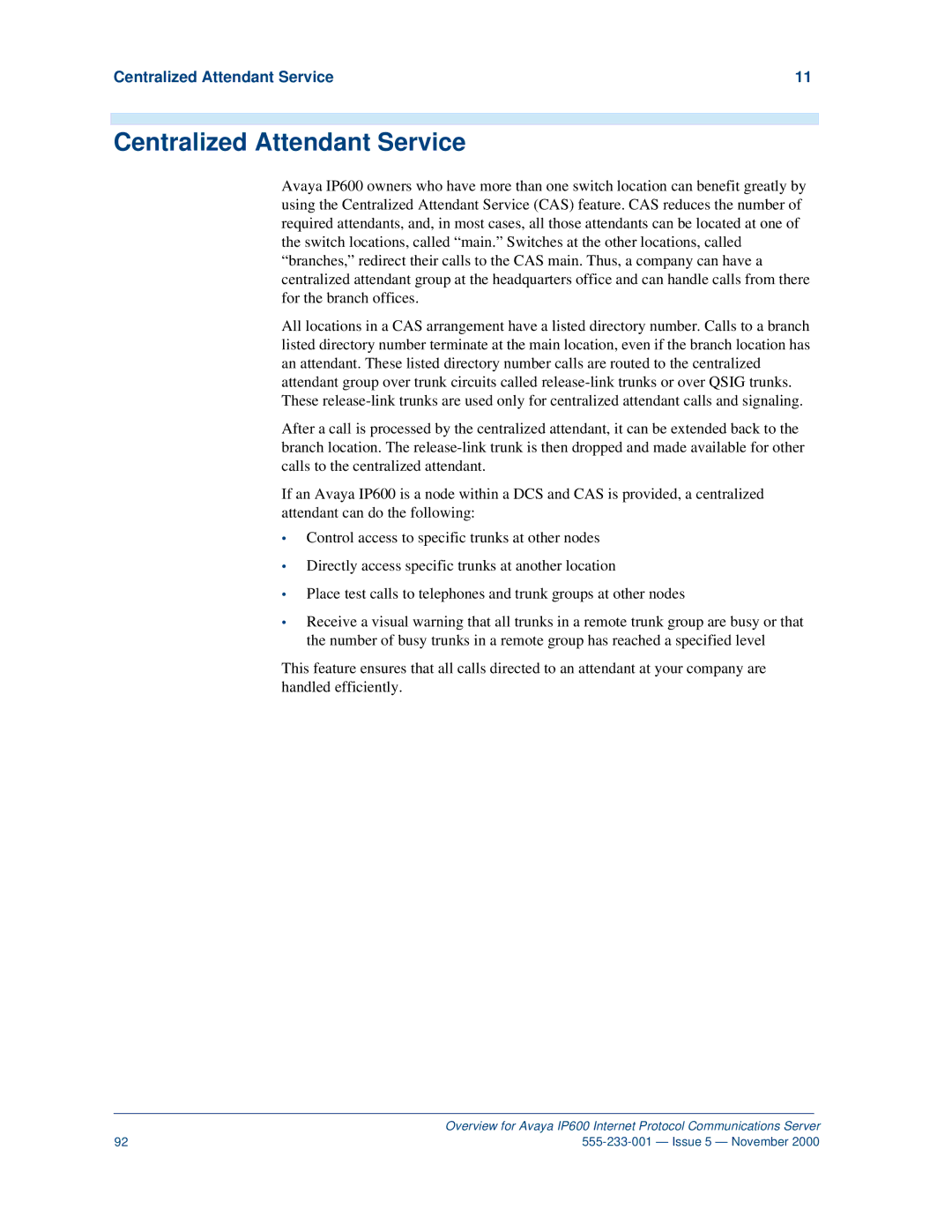
Centralized Attendant Service | 11 |
Centralized Attendant Service
Avaya IP600 owners who have more than one switch location can benefit greatly by using the Centralized Attendant Service (CAS) feature. CAS reduces the number of required attendants, and, in most cases, all those attendants can be located at one of the switch locations, called “main.” Switches at the other locations, called “branches,” redirect their calls to the CAS main. Thus, a company can have a centralized attendant group at the headquarters office and can handle calls from there for the branch offices.
All locations in a CAS arrangement have a listed directory number. Calls to a branch listed directory number terminate at the main location, even if the branch location has an attendant. These listed directory number calls are routed to the centralized attendant group over trunk circuits called
After a call is processed by the centralized attendant, it can be extended back to the branch location. The
If an Avaya IP600 is a node within a DCS and CAS is provided, a centralized attendant can do the following:
•Control access to specific trunks at other nodes
•Directly access specific trunks at another location
•Place test calls to telephones and trunk groups at other nodes
•Receive a visual warning that all trunks in a remote trunk group are busy or that the number of busy trunks in a remote group has reached a specified level
This feature ensures that all calls directed to an attendant at your company are handled efficiently.
| Overview for Avaya IP600 Internet Protocol Communications Server |
92 |
